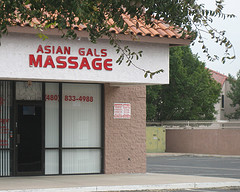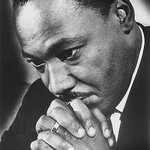Finding quality treatment for sex addiction, whether you are the one who identifies as a sex addict or are the partner, spouse, or loved one of one, is a huge challenge. This is especially true in rural areas, as there are often not readily available resources and therapists that have been trained and are qualified to treat those affected by sex addiction.
There are options, though, for those looking for treatment for sex addiction but are having a hard time finding a therapist that specializes in sex addiction in their area. I’ll start with how to find a treatment program or therapist close to you, and end with the option of finding someone online that specializes in sex addiction. SexTherapy-Online (www.sextherapy-online.com) is one such practice that provides quality online sex addiction therapy to clients, partners, and couples.
In-patient or Out-Patient Treatment for Sex Addiction
The first step would be to decide whether the person with the sex addiction wants/needs in-patient or out-patient treatment. In-patient treatment for sex addiction is treatment that is usually provided at a residential treatment facility, such as a hospital, rehab facility, retreat, etc., that includes a certain length of stay (as short as three days up to 90 days is typical). In-patient treatment for sex addiction usually requires their patients/clients to live at the facility and may or may not involve returning home on weekends or overnights. Generally, most people travel to these facilities for sex addiction treatment.
Out-patient treatment for sex addiction can look like a variety of things. Intensive outpatient treatment programs for sex addiction (often called IOPs) are usually programs that meet during the day, either for a half day or full day, but allow the clients/patients to return home overnight.
The above mentioned treatment options for sexual addiction are considered the most effective and the most intensive and have a good reputation of helping people treat their sex addiction.
Other out-patient treatment options for sex addiction and spouses and partners of sex addicts can look like weekly (or more) therapy with a qualified professional plus 12-step meetings and other therapies. Out-patient treatment programs can often be tailored based on the clients access to time, resources, and responsibility.
Outpatient Treatment for Sexual Addiction for Addict and Partner
Good out-patient treatment should follow a “three-legged stool” approach (Carnes, 2015). The first leg of the stool is the addict’s therapist and an appropriate support group and/or 12-step program. There are several 12-step groups for sex addiction including:
Sexual Compulsive Anonymous: http://www.sca-recovery.org
Sex Addicts Anonymous: https://saa-recovery.org
Sex and Love Addicts Anonymous: http://www.slaafws.org
Sexaholics Anonymous: http://www.sa.org
Sexual Recovery Anonymous: http://www.sexualrecovery.org
The second leg of the stool is the partner’s therapist and an appropriate support group. Services for partner’s are generally very lacking at this time in the field and most areas do not have a support services for partners; however, there are a few resources available through the following organizations:
Codependents of Sexual Addiction: http://www.cosa-recovery.org
Partners of Sex Addicts Resource Center: http://posarc.com
The final leg of the stool is for the couple to have their own therapist, who may or may not be appropriate to do family work (let’s not forget about the often overlooked victims of sex addiction: the children of sex addicts).
Finding a Therapist for Sex Addiction
Now here is the million dollar question: how do I find an QUALIFIED therapist, intensive outpatient treatment program, or inpatient program that can help someone with sex addiction and their partner, especially in areas where therapist’s might be hard to find (such as rural areas)?
Two places to begin would be the following:
The American Association for Sexuality Educators, Counselors, and Therapists (AASECT) http://www.aasect.org, is the national certifying body for sex therapists. You can search by state and find a professional who is certified in the field of sex through a rigorous certification process. Now not all AASECT professionals will have experience or training in sex addiction, so it is important to ask them if they have worked with and have training in sex addiction. Another important point is that not all therapists have experience with working with each leg of the stool (especially couples) so it is important to make sure that your therapist is skilled and trained to work with couples as well (if the therapist you are seeking is for the couple).
Another place would be the International Institute of Trauma and Addiction Professionals (IITAP) http://www.iitap.com. This Institute certifies Certified Sex Addiction Therapists (CSAT) and you can search by zip code and by state. These therapists have gone through an intensive four, week-long training module series to have them certified as a CSAT. As mentioned above, make sure that they have experience working with addicts, partners, and/or couples before you make your decision.
Another option, since many folks won’t live anywhere close to a Certified Sex Therapist or a Certified Sex Addiction Therapist, would be to Google “sex addiction therapy” or “sex addiction therapist” or “sex addiction treatment facility” and your state or location. This will likely pop up anyone close to you in your area that may work in sex addiction or any treatment centers close to you (as likely the search will be done by your location). On the first page of your search results, you will most likely see a link to a PsychologyToday listing: Psychology Today is the leader in independent therapist listings and will take you to a page of therapists that list one of their specialities as sex addiction. This is a good list, HOWEVER, BUYER BEWARE! Most of the folks that list sex addiction as their specialty feel comfortable working in sex addiction but may or may not have any training in the field of sex or sex addiction. It’s important to read their short biography on Psychology Today, then go to their website from their profile page and read their qualifications. Psychology Today only verifies that the therapists are licensed in their states (or going to be licensed). They do not verify that the therapist is actually trained in sex addiction treatment. Then give them a call and check them out.
SexTherapy-Online: An ONLINE Option for Sex Addiction Treatment
So what happens if you find NO ONE in the above stated methods that is close enough to you to be practical to see them frequently (especially if you choose outpatient therapy for treatment)? Look for “online sex addiction therapy” and your state and see what you find!
SexTherapy-Online (www.sextherapy-online.com) is an online sex therapy practice that specializes in sex therapy and treatment for sex addiction. SexTherapy-Online can help clients, partners, and couples struggling with sex addiction from the states of Maine, Massachusetts, New Hampshire, New York, and Texas. SexTherapy-Online provides therapy over the internet using secure video conferencing, secure online chat, or over the phone.
An important thing to note, though, is that online therapy is usually limited to the state’s that the therapist is licensed in (meaning you most likely cannot receive therapy from a person in California if you live in Maine). The only exception to this would be if for some reason your state allowed you to receive treatment from a therapist in another state (which is a rarity- most states only allow you to be seen by therapists in the state you are living in or residing in). You would need to consult your state’s laws before seeking out this type of distance or “tele-therapy”.
Even if the therapist does not offer online or tele-services, don’t be afraid to ask! They might be willing to see you, especially if you don’t plan on using insurance for treatment, at a distance. But again, be aware that this might be a modality out of the therapist’s scope so it might not be appropriate for everyone. Also, an online model for treatment isn’t appropriate for everyone, especially folks with more severe co-existing conditions like chemical dependency, suicidal ideation, bipolar disorder, personality disorders, and a history of violence.
Making Sure Your Therapist is the Right Fit
It is important to call your therapist and speak to them before you begin therapy. Your evaluation of the therapist begins right then and there! According to Ardito and Rabellino (2011), the quality of the client–therapist alliance is a reliable predictor of positive therapeutic outcome independent of the variety of psychotherapy approaches and outcome measures. It is important that you and the therapist fit well together, so start your evaluation right then and there.
Finding an In-Patient Treatment Facility for Sex Addiction
A qualified therapist who has experience with sex addiction would be able to provide you with a referral, even if you don’t become a client, to a good treatment facility for sex addiction if you would like to go to a residential treatment facility.
Or you could try to google “sex addiction treatment facility” or “sex addiction intensive outpatient program” and see what comes up. You could also go to a 12-step meeting and speak to some of the other recovering members to see where they did their inpatient treatment and where they would recommend. When it comes to inpatient treatment, it is likely you would need to travel to go to one. Intensive outpatient programs are becoming more popular these days but still can be hard to find. The International Institute of Trauma and Addiction Professionals (http://www.iitap.com) has a list of treatment partners that have intensive outpatient programs and inpatient programs, but that list does not list quite a few of the major players. Do your research and ask around. There are a lot of programs that are excellent but you need to know about them.
It is important you look at the reviews of the facility and call the facility ahead of time. Some facilities pop up and would gladly take your money, but don’t always have a good reputation or provide the services they say they offer. It would be important to know how long the facility has been in operation for and to look at what folks are saying about it as well.
No matter what treatment option is chosen, treatment of and recovery from sex addiction for the addict and their partner and children takes a LOT of time, energy, and resources and is hard work. There is no easy fix for addiction treatment- it took a long time to get where people are when they finally seek treatment, it takes a long time to unravel that knot. The good news is (though): treatment DOES help!







